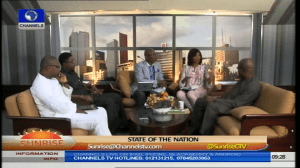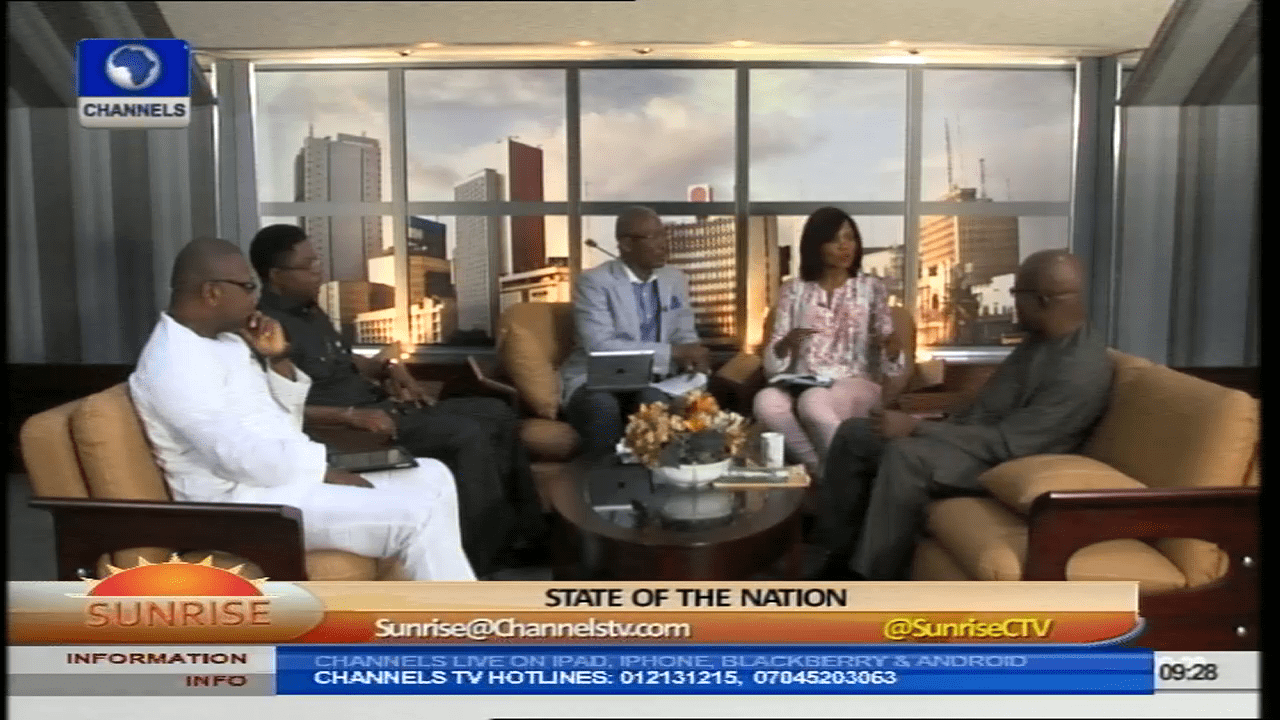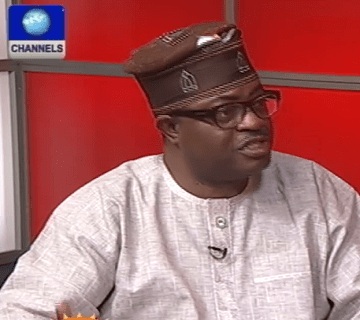
Since January 2014, Boko Haram has killed over 1,500 people, mostly civilians, and that figure does not include the 95 people who died in the two bombings in as many weeks at Nyanya in Abuja and the over 150 killed in Gamboru, Borno State, last week.
Though President Goodluck Jonathan identified persistent violence and crime as a major problem confronting the country when he assumed office in 2011 and promised to “confront this threat against our collective peace and security, and bring the perpetrators to justice”, 200 school girls were abducted in a secondary school in Chibok, Borno State.
On this segment of Sunrise, legal practitioner, Bisi Adegbuyi is joined by the Secretary of United Niger Delta Energy Development Security Strategy (UNDESS), Tony Uranta and a social commentator, Kalu Onuma, to discuss the present state of Nigeria.
Mr Uranta, who reiterated his enthusiasm in the #BringBackOurGirls movement, noted that the question has been directed to the wrong quarters insisting that the protesters should have been talking to Boko Haram and not President Goodluck Jonathan.
He further added that the government (previous and present) have “failed in a lot of ways; not just this one, because the very structure that they are built upon is designed to fail”.
In a swift response, Mr Adegbuyi, disagreed with Mr Uranta that the question is been channeled to the wrong quarters.
Mr Adegbuyi, who boasted about his knowledge of the jurisprudential underpinning of governance, insisted that “Mr. President represents our collective will adding that we have mandated him to act on our behalf and represents the management of Nigeria; he is the Commander in Chief of the armed forces of Nigeria and therefore he has the responsibility to bring back our girls”.
He urged the president to rise up to the occasion since he held himself out and asked to be voted into office.
He also stated that though the president can’t go out and bring back the girls himself, “the strong influence of power and office he wields should be put to proper use in ensuring the girls are rescued immediately”.
Speaking via telephone on the programme, former Minister of Education, Obiageli Ezekwesili expressed “profound sadness” at the incident but assured of her “resolve to stand by the girls and their families.
“I think that anything that has to do with the Chibok girls really makes a statement as to the values that we subscribe to individually and collectively” she said.
She expressed “shock at the depth of corrosion of values that we subscribe to while growing up as a nation” and insisted that “our government, which has the responsibility constitutionally for the security of lives and property of citizens, should give us the accountability of the girls who answered the noble call to acquire education” and were abducted by Boko Haram insurgents.
The former minister, who led a protest to the Presidency but was received by a presidential delegation, expressed disappointment over the response the President gave through the Minister of State for FCT, Jumoke Akinjide.
On his part, Mr Onuma blamed the Nigerian security forces for not living up to the expected level, insisting that “the army and security apparatus has completely failed Nigerians.
“They have been given so much money, so much funds, so much support but at the end of the day, no one takes accountability, nobody answers to us; nobody tells us what is going on”.



